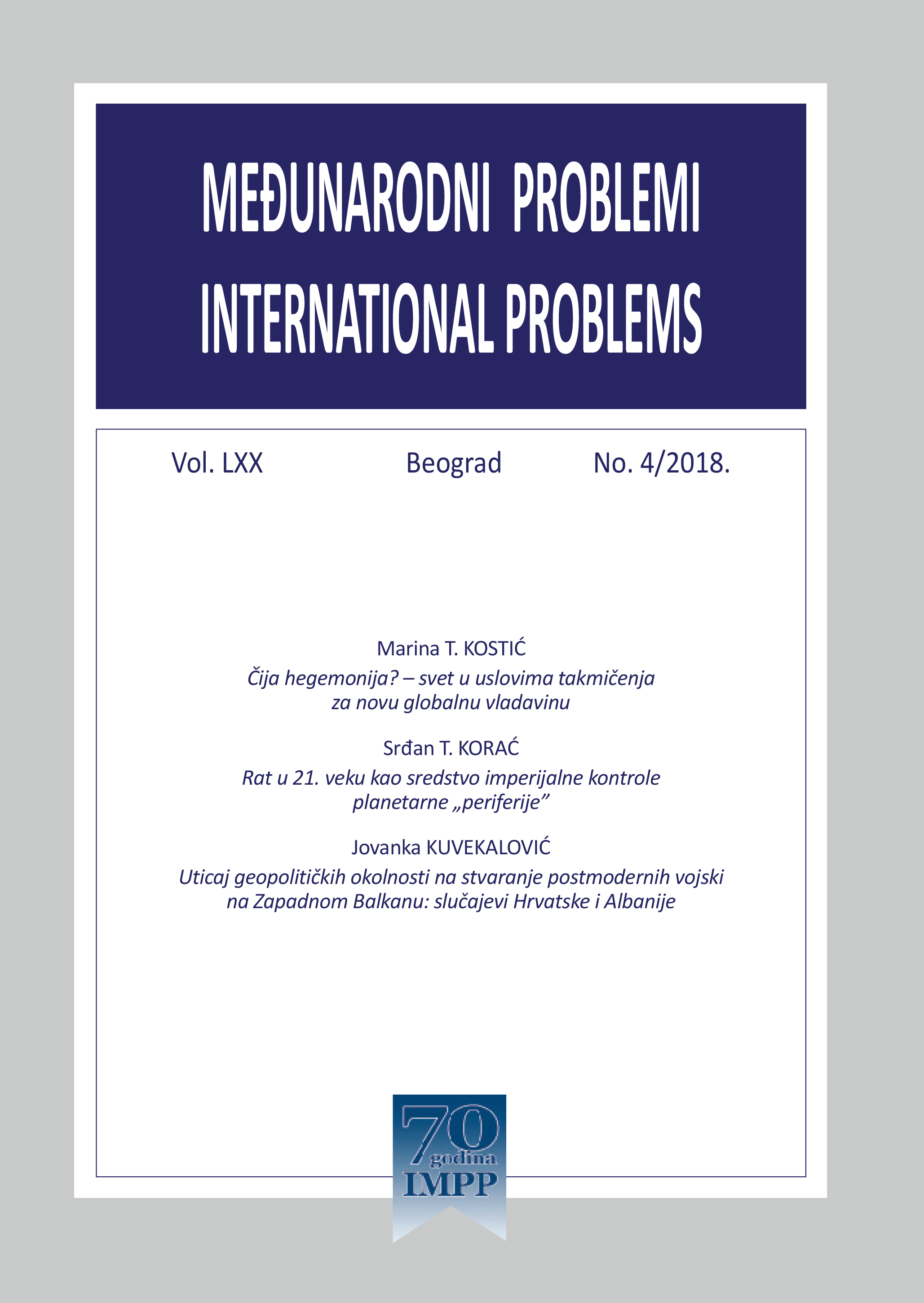Uticaj geopolitičkih okolnosti na stvaranje postmodernih vojski na Zapadnom Balkanu: slučajevi Hrvatske i Albanije
THE IMPACT OF GEOPOLITICAL CONDITIONS IN THE EMERGENCE OF POSTMODERN MILITARY IN THE WESTERN BALKANS: THE CASES OF CROATIA AND ALBANIA
Author(s): Jovanka Kuvekalović StamatovićSubject(s): Politics / Political Sciences
Published by: Институт за међународну политику и привреду
Keywords: postmodern military; NATO; geopolitical circumstances; Western Balkans; Albania; Croatia
Summary/Abstract: The phrase of postmodern army comes from theoretical concept, whose creator was American military sociologist Charles Moskos. His idea was to observe, analize and conceptualize the role of military in society and the state, after the end of the Cold War. Period since this time point until today, is by Moskos named as "postmodern". During this time, the new world order and power balance created security constellation with specific features. The collapse of communism in the Soviet Union and Eastern Europe, the bipolar division of the world, different physiognomy of war and security threats, marked the new geopolitical context. In this conditions, NATO as one of the most important political-military alliance was challenged regarding to create a response to new security threats with assymetric character. As a result, NATO adapted its capacities and function, through intensive process of reform and modernization. Alliance became more attractive for many states who weren`t members, especially because they couldn`t relie on their individuall efforts in the complex security environment. From perspective of these states, integration in NATO could provide them support, protection, and also improvement for their armies. One of the main points in integrations was to adopt standards which are related to modernization armies. Through modernization and it`s implementation one of the main tasks was to reduce forces, making them more adaptable and capable for facing with potential threats. Bearing in mind that the Republic of Croatia and the Republic of Albania are on of the first states in Western Balkans, that have become NATO members, they are considered as reference research facilities. By analyzing their strategic and doctrinal documents, obtained insight leads us to the next conclusions. From theoretical point of view, creating postmodern armies with all characteristics that Charles Moskos attributes in his theory are compatible with the armies of the states which are the members of NATO. Based on this thesis, application of Charles`s theoretical concept was justified. Also, results confirmed general hypothesis which refers to the fact that the geopolitical circumstances in an indirect way through the adaptation and integration processes in the NATO alliance, have influenced the creation of a postmodern army in the way that Moskos represents. A wider political dimension is reflected in the commitment of Croatian and Albanian defense policies to the peaceful and defensive goals, such as international peace and stability
Journal: Међународни проблеми
- Issue Year: LXX/2018
- Issue No: 4
- Page Range: 432-451
- Page Count: 20
- Language: Serbian

